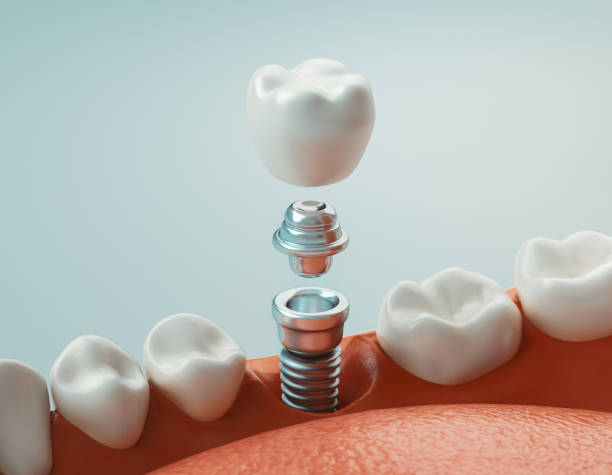Dental implants have a greater success rate than other methods of replacing teeth. Dentures and bridges are the different ways in which teeth are replaced. Many times, these other methods fail because of gum disease or fracture.
For the most part, dental implants are safe, as long as you do not have an underlying health condition. You should also not smoke or neglect your teeth and gums with an implant. If you take care of your implants, they can last for many years with no issues.
Dental implants rarely fail. When they do, it is typically due to extenuating circumstances. Read this article and find out if dental implants are safe in the long run for your oral health.
What Are the Long -Term Risks of Dental Implants?
The typical lifespan of dental implants is about 25 years. They could even last longer if you take good care of them. As a general rule, dental implants should be replaced every 10 to 15 years. However, certain variables put the implants at risk for failure over the long term.
Some of the long-term risks and reasons why implants may fail to include the following:
Bone Loss/Smoking
This event occurs in those who wait too long to get dental implants after tooth loss. When no tooth is present for support, the jawbone will weaken. The consequence is that the bone does not fasten itself directly on the implant and fails to grow around it.
The result is that there is no support for the implant. Smoking can cause bone deterioration and contribute to plaque production. Smoking after the first two weeks of surgery raises the chance of implant loss.
Infection is another result of smoking, and it also encourages bone loss around the titanium screws. Research has demonstrated that implants are twice as likely to fail in smokers compared to non -smokers.
Medical Condition Has a Negative Impact on Healing
Certain medical conditions can have a negative impact on the healing process. Some of these health conditions include:
- Cancer
- Diabetes
- Gum disease
- Autoimmune disorders
These health problems can affect the body’s ability to heal correctly. With diabetes, for example, fluctuating blood sugar has an adverse effect on glucose in the body and slows down the progression of wound healing.
Another example is that some of the medications that people take for autoimmune disease can, over time, cause bone loss. This loss is not suitable for dental implants. Another caveat is that dental implants may be a poor choice if you need these medications.
Small Movements Cause Instability in Implant
Dental implants generally take about 16 to 17 weeks to heal completely. If there is even the slightest movement of the implant, the bone will not develop alongside the implant. The result is soft tissue ingrowth instead of normal, healthy growth.
This scenario is how the implant gets loose and becomes extremely painful. This situation can also occur when dentists do not take the time to correctly measure the teeth to ensure that one does not need to be shortened to safeguard against any pressure on the tooth.
Peri-Implantitis
Peri-implantitis is an infectious illness that triggers the hard and soft tissues surrounding the dental implant. This infection causes the weakening of the bone around the implant. It is often caused by poor dental hygiene and not caring for the teeth correctly.
Some of the indications of the illness include:
- Bleeding gums
- Pain around the implant
- A loose implant
- Redness of the oral mucosa
Peri-implantitis increases the likelihood of implant failure. If you feel any of these indicators, you need to contact your dentist right away.
Excessive Stress on Implants
If there is too much stress on an implant, it can lead to bone loss. A pocket may form between the gums and implants. Some of the indications that there are gum pockets and gum disease include the following:
- Pain in the mouth
- Bleeding when brushing or flossing
- Pus between the gums, teeth, or implants
- Constant bad breath
- A difference in the way the implants fit
- Teeth that are loose or separating
Sometimes the bone around the pocket has lost its smoothness, and it needs to be fixed. There are also instances where the dentist adds bone to places that have decayed.
Conclusion
Even though there are risks to having dental implant oral surgery, it remains the most successful way of replacing your teeth. However, it is an expensive procedure compared to getting dentures or bridges.
It is worth it in the long run if there are no significant complications due to a health condition. When getting dental implants, make sure that you choose a very experienced and skilled Lake Forest Dentist to perform the procedure.

